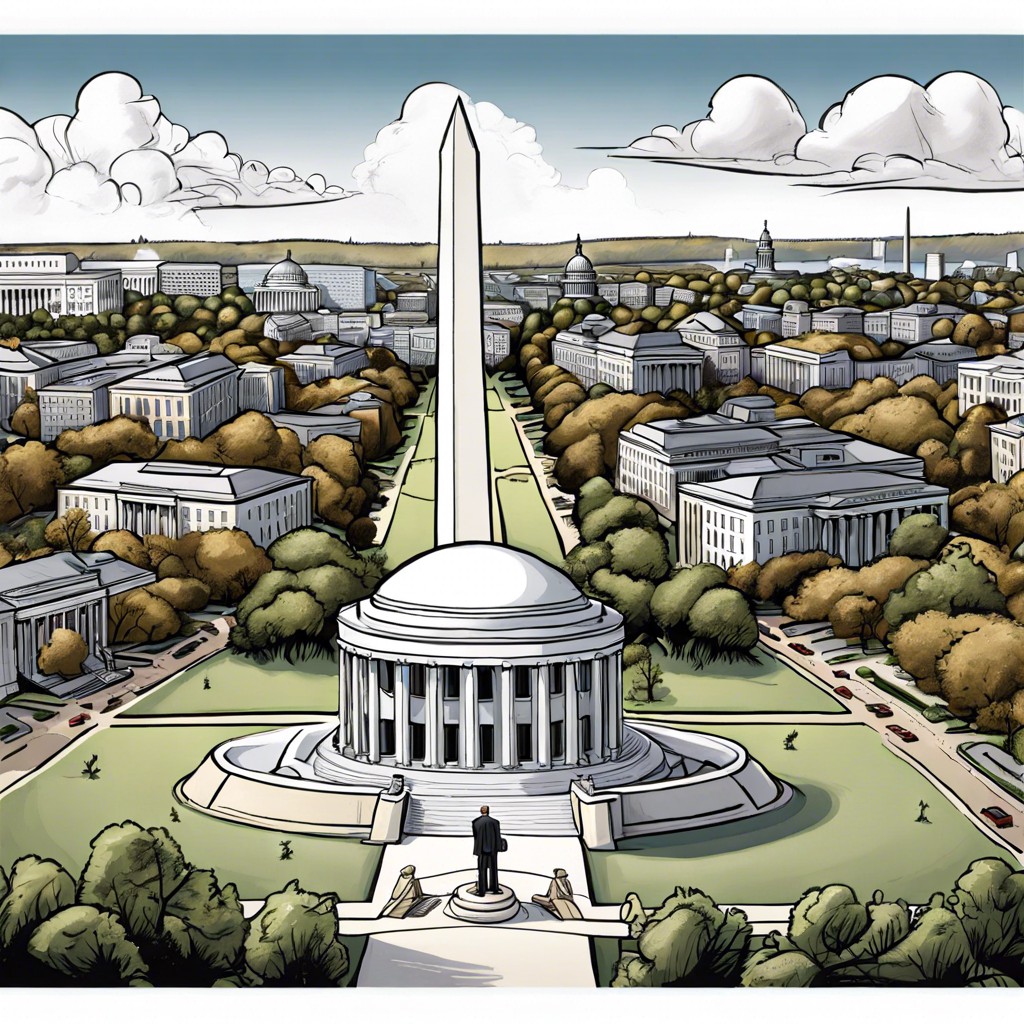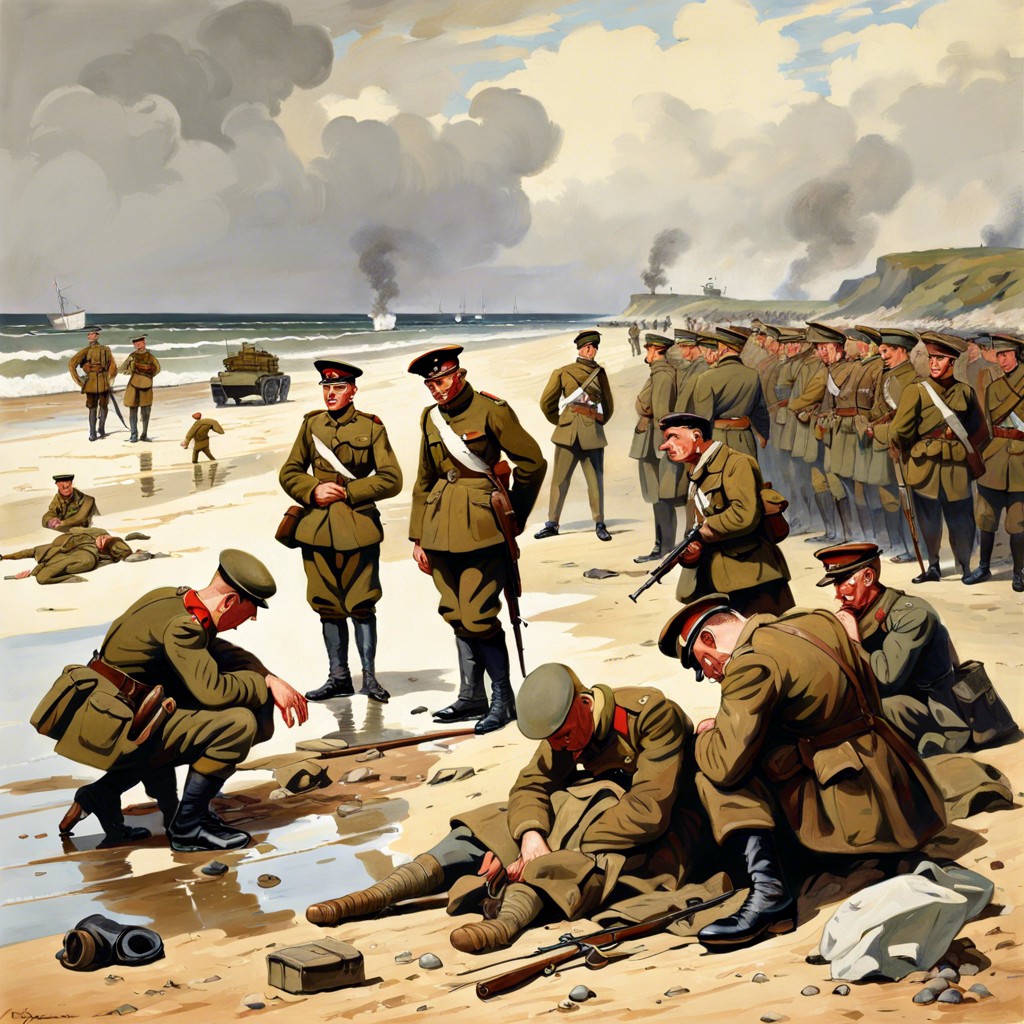Discover the profound impact on American history and security if Flight 93 had reached its intended target on that fateful day.
Imagine if Flight 93 had hit its target. Washington, D.C. in chaos, a starkly different political landscape. National security policies flipping like acrobats, media in a frenzy, and the public reeling. What laws would have changed, and how far would the war on terror stretch? Buckle up; we’re diving into this perilous “what if” and unraveling every ripple effect.
Key takeaways:
- If Flight 93 hit its target: Washington chaos, panic.
- Economic repercussions: Markets plunge, global impact.
- Political aftermath: Laws rushed, careers at risk.
- Security changes: Strict airport rules, surveillance increase.
- Media frenzy: Public trust drops, journalism shifts.
Possible Impact On Washington, D.C

Imagine a direct hit: chaos, panic, and confusion reigning supreme.
First, the physical destruction would have been devastating. Buildings near the target, whether it was the U.S. Capitol or the White House, could face extensive damage. The dramatic skyline of Washington, D.C., scarred, perhaps permanently.
Next, the psychological impact. The heart of American democracy under siege. Civilians and government employees caught in the crossfire, exacerbating the national trauma already inflicted.
Economic ripple effects would surely follow. Markets hate uncertainty, and a direct hit on a government centerpiece would trigger market panic. Investors scrambling, stock prices plummeting, and an economic tremor felt worldwide.
Lastly, emergency responses would turn frantic. Local resources stretched thin, federal agencies scrambling to support, and military personnel on high alert. The nation’s capital, usually a symbol of stability, suddenly flipping into crisis mode. This wouldn’t just be a national story; it would be a global headline.
Immediate Political Ramifications
Washington, D.C., already a whirlwind of political activity, would’ve gone utterly haywire. Imagine Congress scrambling like ants at a disrupted picnic while emergency protocols roll out in chaotic fashion. Politicians would have been pressured to respond immediately, perhaps even irrationally.
First up: a surge in security. Meetings in underground bunkers? Totally plausible. Increased military presence around every corner? Absolutely.
Next, legislative mayhem. Laws would be rushed through faster than a hot knife through butter, aimed at tightening national security, sometimes at the expense of personal freedoms.
Finally, political careers hanging in the balance. Leaders would be scrutinized to Mars and back—those who fumbled would likely find themselves in a career black hole, while those who acted decisively might see their popularity skyrocket, regardless of the effectiveness of their actions.
National Security Changes in Response
With a direct hit, national security measures would have skyrocketed faster than you can say “TSA pat-down.” First up, tighter airport security. Think multiple ID checks and luggage screenings that feel like they’re auditioning for a sci-fi dystopia.
Next, the government’s surveillance programs would likely evolve from occasional eavesdropping to full-scale Big Brother. Privacy advocates? They’d be drowning their sorrows in triple-shot espressos.
The military would ramp up domestic operations, with more National Guard presence in major cities. Safe to say, you’d spot more camouflage at the grocery store than in a Call of Duty game.
Law enforcement would strengthen collaborations with intelligence agencies. Picture more inter-agency meetings than a season’s worth of police procedurals.
In essence, daily life would see a hefty injection of caution and scrutiny.
Public Perception and Media Coverage
One can imagine the media frenzy that would have erupted. More intense than a summer blockbuster with a plot twist, the 24-hour news cycle would have gone into overdrive. Headlines would scream, “Terror in the Capital!” and pundits would practically be auditioning for drama school with their frenzied analyses.
Public trust in the government would likely take a major nosedive—sort of like a poorly executed skateboard trick. People would question how such an attack could happen right under the noses of the nation’s top security agencies.
Families would feel less safe; communities would rally together, driven by a cocktail of patriotism and fear. Non-stop coverage would lead to a new level of media hyper-awareness, with even the smallest details analyzed to the point of exhaustion.
We can’t forget social media. It would be a hive of speculation and conspiracy theories. Keyboard warriors? Reporting for duty! Memes, videos, and amateur sleuths would flood timelines, as everyone tries to make sense of the chaos.
The ripple effect on journalism would be profound. More investigative pieces, more emphasis on real-time reporting, and oh, a hefty increase in subscription rates for news websites because information would become the new gold.
Long-term Effects On Terrorism Policies and Laws
With an attack on the nation’s capital, the U.S. might have turbocharged its already accelerating agenda on terrorism policies and laws. Let’s face it, the immediate reaction would likely mirror a caffeine overdose: hyperactive and a little jittery.
Increased Surveillance: Expect way more eyes in the sky and ears on your calls. The Patriot Act might have looked tame in comparison to new, beefed-up surveillance laws.
Travel Restrictions: Flying would become even more a test of patience than holiday shopping lines. Enhanced screening? That’s just the beginning. Picture limits on anything larger than a postage stamp in your carry-on.
More Government Agencies: Yet another acronym to remember! Imagine a brand-new task force or agency solely focused on foiling such attacks – because clearly, you can never have too many three-letter agencies.
Civil Liberties: Less freedom, more security measures. Think of it as trading your comfy slippers for steel-toed boots. Safety first, personal space second.
Bipartisan Agreements: For once, politicians might actually agree on something. Increased security measures could become a rare area of unity across the aisle, though the debate would simmer over the details.
New Normals: The definition of “normal” changes faster than fashion trends. Brace for a future where security measures become standard practice, and your backpack gets more attention than a celebrity scandal.




